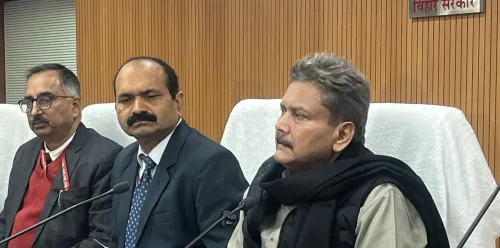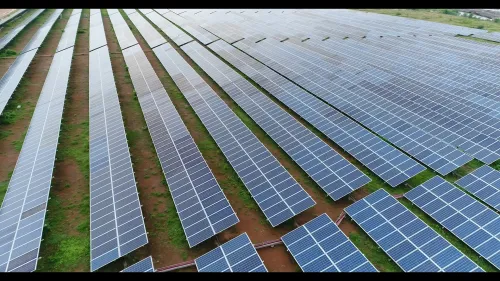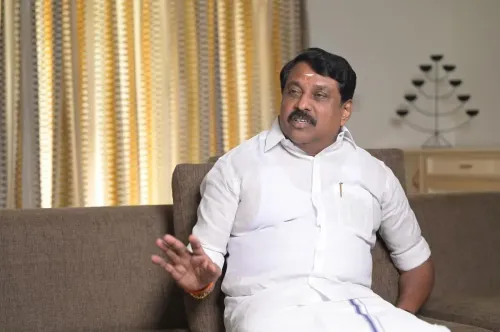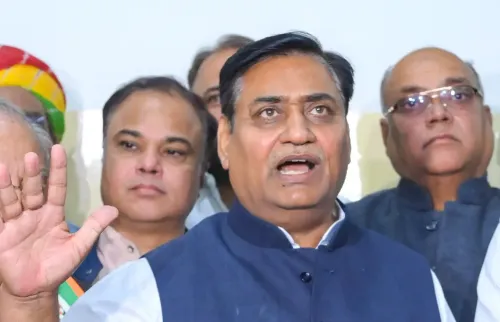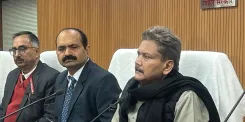Is the Odisha Assembly Facing Disruption Due to BJD's Protests Against the 'Curtailment' of Panchayati Raj Powers?
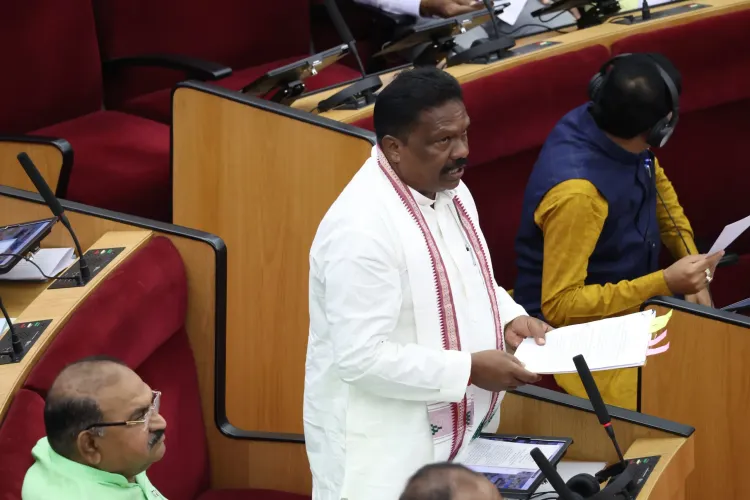
Synopsis
Key Takeaways
- Protests highlight concerns over democracy
- Government's actions provoke strong backlash
- Decentralization of power is under threat
- BJD vows to continue protests until demands are met
- Financial power shift raises governance issues
Bhubaneswar, Sep 23 (NationPress) The Odisha Assembly experienced tumultuous scenes on Tuesday as members of the opposition Biju Janata Dal (BJD) raised their voices in protest, claiming that the state government is undermining the Panchayati Raj Institutions (PRIs).
As the Question Hour commenced, BJD representatives rallied near the podium of Speaker Surama Padhy, voicing their discontent with the government's actions that they allege are restricting the authority of elected officials at the grassroots.
Despite the uproar, Speaker Padhy permitted the Question Hour to proceed, with Rabi Narayan Naik, the Minister of Panchayati Raj and Drinking Water, responding to the legislators' inquiries.
Simultaneously, Congress members engaged in a quiet protest within the assembly, holding signs that proclaimed “BJD-BJP are brothers”, leveling accusations against both factions for their inability to facilitate a smooth legislative process.
The Speaker was observed making repeated appeals to both the BJD and Congress members to maintain order, but these requests fell on deaf ears. The ongoing chaos led Speaker Padhy to adjourn the assembly until 4 p.m. after a mere 20 minutes of proceedings.
In remarks to the media, BJD leader Goutam Buddha Das emphasized that Mahatma Gandhi had fervently promoted the empowerment of rural populations through decentralization for national progress.
He further noted that the three-tier Panchayati Raj framework was established in line with Mahatma Gandhi's recommendations through the 73rd Constitutional Amendment Act. Senior BJD leaders highlighted that this amendment ensured decentralization by assigning authority to ward members, Sarpanch, Panchayat Samiti members, Block Chairpersons, Zilla Parishad members, and other grassroots representatives.
“However, since the BJP took charge in the state, they have been diminishing the powers of elected representatives, thereby infringing upon the rights of the populace. This amounts to a blatant attempt to undermine democracy. The government is conspiring to shift power from the people into the hands of bureaucrats,” asserted Das.
He reiterated that the BJD would persist in its protests both within and outside the assembly until the state government reverses its decisions and reinstates the authorities previously held by Sarpanchs, Block Chairpersons, and Zilla Parishad members.
BJD activists and leaders from all 314 blocks across the state are partaking in demonstrations regarding this issue on Tuesday.
The state cabinet, on September 10, sanctioned a proposal to enhance the financial authority of Block Development Officers in Panchayat Samitis and the Chief Development Officer-cum-Executive Officer in Zilla Parishad to approve bills up to Rs 10 lakh without requiring further countersignature from elected representatives.
Both the Biju Janata Dal and Congress have condemned this government decision to empower PRI officers financially, arguing that it would weaken the role of elected officials on the ground.


